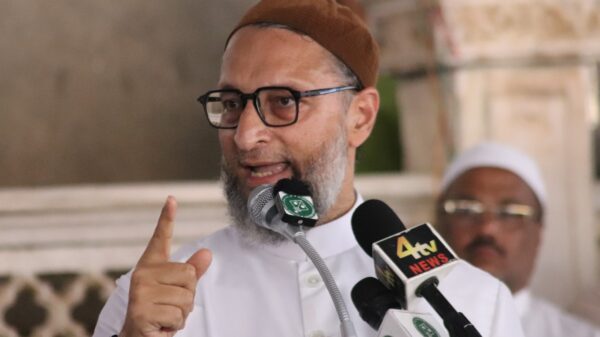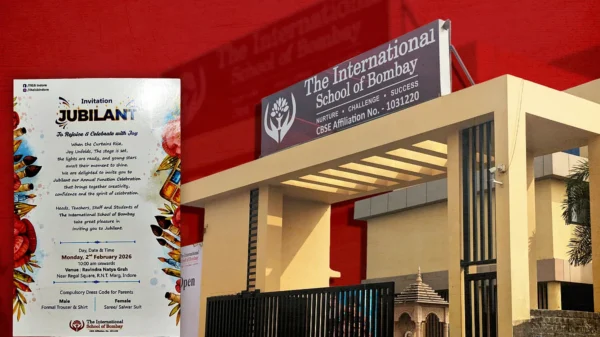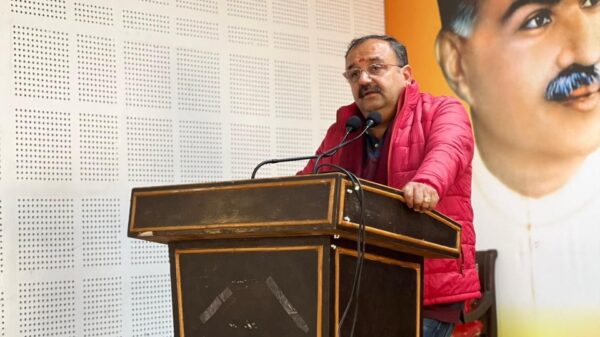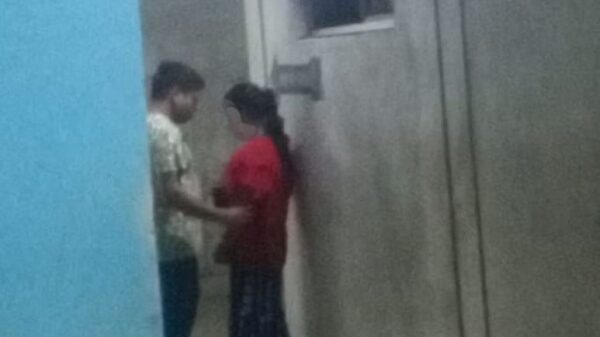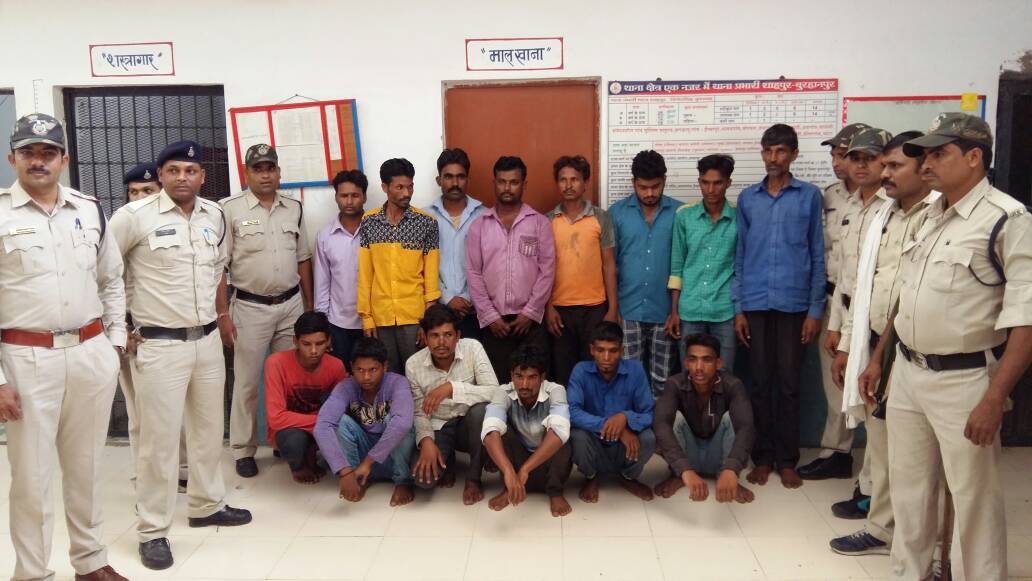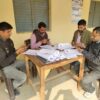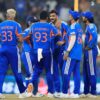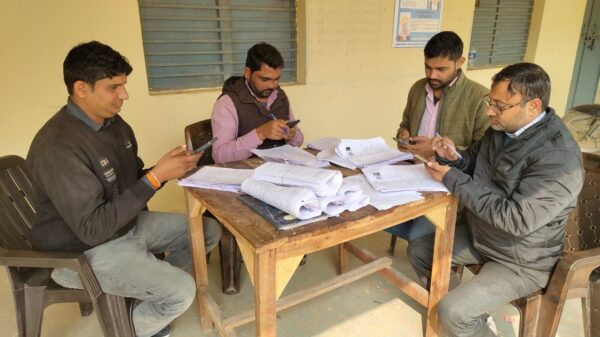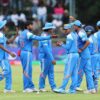It has been over six years since Madhya Pradesh’s 17 Muslim men and two minors made national headlines allegedly for celebrating Pakistan’s victory in a cricket match against India. However, the same failed to reach most media channels when the accused were exculpated after an MP court found the police case to be false in October last year.
June of 2017 was a month of blue for most cricket fans of India as the Indian team suffered a heartbreaking loss following the defeat against Pakistan in the Champion Trophy final at the Oval Stadium in London. Hours later, the match had flipped life upside down for a few families living about 30 km from the state capital Bhopal in Mohad village when about 30 men including minors were picked up by the police, purportedly after confirming they had Muslim names.
The arrested men were accused of celebrating Pakistan’s victory by shouting pro-Pakistan slogans, lighting firecrackers and sharing sweets among the villagers. All while, having no evidence and no witnesses to prove the allegation. A First Information Report (FIR) was filed the very next day on the 19th of June.
The Observer Post spoke to one of the accused Imam Khudabaksh Tadvi, 29, who is a daily wager. This father of two was on his way to drop his 6-year-old daughter off to school when he was stopped by the police. As he refused to go with the police, they started beating him in front of his daughter, during which the child fell and injured her nose. “Che saal puraani nishaan abhi bhi uske naak par hai (The scar of a deep scrape on her nose is visible even after six years),” he said.
“I have no TV in my house, how could I know anything? In fact, I don’t even know any cricketer’s name”, Imam asserted.
19 Muslims aged between 16 to 40 were initially booked for sedition and criminal conspiracy under the Indian Penal Code, 1860, until sedition charges were replaced by that of promoting enmity between different groups. The police were adamant and persisted in the case even after the Hindu complainant identified as Subhash Laxman Koli, publicly denied having filed any complaint.
Koli is reported to have said that the police took his phone and dialled 100 with it when he visited the police station at Shahpur after his friend Anis Sheikh Babu Mansuri was arrested. “I was sitting on the side, but I could hear them faintly saying, ‘I am from Mohad, some children are fighting in my village,” he said. He further called the police complaint a lie as the police hadn’t read out the FIR to him nor did they collect his statements.
Six years of arrest, jail, and court trials, along with verbal abuse, degrading labels that damage dignity, and reputation, and instilling shame and fear since 18 June 2017, have left them traumatized while fighting for sustenance. Two minors who were 16 at the time, Mubarik Tadvi and Zubair Tadvi, were acquitted by the juvenile justice court in June 2022.
After months of distressful living, Devesh Mishra, a first-class judicial magistrate, acquitted the remaining 16 accused (one died) after the complainant and twelve government witnesses confessed before the court that they were forced to make false allegations against them.
The court ruling “after going through all the evidence, arguments and eyewitnesses, there was no proof that the accused raised slogans and burnt firecrackers” indicated that the police complaint did not hold water, and failed to prove them guilty.
A copy of the judgment order accessed by The Observer Post read, “Ultimately, on the basis of all the (above) evidence analysis, the court concludes that the prosecution has failed beyond reasonable doubt to prove its case against the accused under section 120B, section 153-A read with section 120-A. As a result, the accused are acquitted of the above charges.” This comes, after tremendous losses were already suffered.
‘People would look at us as if we are traitors when they don’t even know the truth’
What’s given little attention are the immense damages incurred by the victims and their families over the years. “Khud mere rishtedaar hame bura bhala bol rahe the jabbki humne aisa kuch kiya hi nahi. (My relatives were speaking ill of us even though we hadn’t done anything)”, Imam told The Observer Post. After being labelled “traitors” and “terrorists” by the media, relatives, and others, the losses ranged from debt to loss of lives.
Rubab Nawab, 40, committed suicide due to financial strain and not being able to bear the humiliation of being branded as a “traitor” in February 2019. One of the arrested, Sikander Tadvi’s father Mukaddar Tadvi, 60, died in November 2021 devastated and unable to recover from the shock of his son’s arrest.
Apart from the unfortunate deaths, some of the families have revealed that they were tortured and abused by the police. The match results were followed by a series of raids and arrests for a few days. Some have alleged that the police personnel kicked, assaulted, verbally abused, threatened, and denied them food for two days while in the lock-up at the Shahpur police station in June 2017.
However, no one made any complaint against the purported physical violence before the magistrate. Shoeb Ahmad, the advocate representing the accused men, merely spoke of violence in the court briefly, and told The Observer Post, “The frequent visits to mark the attendance had ingrained fear of police in the minds of these people. After this case, nobody had the courage to take the case forward to do further investigation and hold the police accountable.”
During incarceration in the Khandwa Central jail, the verbal abuse and torture persisted. “Jail mein khatarnak din kate hum (The days we spent in jail were hell),” Imam said. In addition to that, these men were called “aatankwaadi” (terrorists) and “gaddar” (traitors) by the lawyers too, when they would go for their hearings. Imam alleged that the police even hurled derogatory slurs towards women in the village during raids.
Moreover, families have immensely suffered financial loss too. Speaking to The Observer Post, Imam said that he lives in a kutcha house and that he had to borrow money from others for the expenses since the arrest, which has left him in debt like others. While some of them lost their jobs, both the minors then — Mubarik & Zubair — did not return to school, even after the acquittal.
Now, what often goes unheard is the mental trauma that comes with it. “Aaj bhi jab woh din yaad karte hai toh aankhon mein aansun aajathe hai. Bohot kathin din nikle hamaare. (Even now, when we think of those days it brings us to tears. Those were very difficult days for us),” said Imam.
Acquittal granted but no justice?
“Rihaayi toh mili hai, lekin nyaay humko nahi mila hai na?, (We were set free, but justice has not been served, right?),” Imam said, adding “Whether it was pressure from above (higher authorities), whatever the reason be, action must have been taken against the perpetrators who did us wrong.”
Meanwhile, the victims of the wrongful persecution and incarceration rejoiced over the court orders for acquittal. The victims have started attending funerals, weddings and functions, in an attempt to get back to their normal lives after going through the unexpected turmoil for years.
The village head, Rafiq Tadvi reportedly said that the families have received no compensation from the government. Talking about questionable justice, Ahmed stressed the reason being penury saying, “Their financial situation has compelled them. We had suggested they pursue litigation for compensation but they just wanted to get acquitted and live a normal life. They would say ‘hame court ne rihaayi di wahi badi baat hai’ (It is more than enough that the court has granted acquittal)”.
The defence lawyer Ahmed added, “The Court did give an order. It read out the vow after taking a decision. But in my opinion, justice would have been served if the court had given an order against those who filed a wrong FIR and granted compensation to the victims and their families. That would have been real justice”.
The case was finally closed after the accused and their families endured about 75 months of suffering. Recalling the days of the past, Imam Tadvi told The Observer Post, “Abhi jo Ramzan chal raha hai, che saalon m yeh pehla Ramzan hai jo accha chal raha hai (This is the first Ramadan in six years that’s going well for us)”.
Similar cases in the past and the Court’s rulings
Criminal lawyer Nikita Sonavane, who is also the founder of Criminal Justice and Police Accountability Project in Bhopal, reportedly said, “Acquittal is not justice if the allegations are not proven,” adding, “What about what the accused have to face in fake cases? This ranges from mental stress to financial loss. What about that? Real justice will be done only when there is a provision for compensation after acquittal.”
There have been multiple cases of similar kind which shows that the award of compensation is not something new. Compensations were previously granted for disappearances, in fake encounters, for picking up a person, death in custody, illegal incarceration, including wrongful prosecution among others.
Looking at the cases of wrongful prosecution or false cases, we can see that Mohammad Habib was detained in Bengaluru over alleged role in connection with the December 2005 shooting case at the Indian Institute of Science (IISc). He was later discharged (not acquitted) due to lack of evidence after serving 4 years in jail and was not compensated.
In June 2021, 44-year-old Bashir Ahmed Baba of Kashmir was arrested on the ground that he was a terrorist and was detained for 11 years, under charges including UAPA, but no compensation has been given. In March 2021, 112 people who spent a few years in jail after being accused of being SIMI members were acquitted 19 years later. Yet again, acquitted, but no compensation granted.
Notably, there was a widespread discussion on ‘compensation for those implicated in false cases’, after the drug racket case on Aryan Khan (son of actor Shah Rukh Khan) was proved false. Moreover, it is to be noted that the Courts themselves have ruled on granting compensation in many such cases in the past.
In 2018, the Madhya Pradesh Court directed the state to compensate the accused in an abduction case for false implication. In the same year, the Supreme Court granted 50 Lakh compensation to Former ISRO Scientist Nambi Narayanan, after being implicated in a fabricated ISRO spy case. Similarly, the Supreme Court has also ruled that those falsely implicated by the police should be compensated.
Addressing the issue in a webinar, former Supreme Court Justice Madan B. Lokur said that the two ways to deal with wrongful prosecution and prolonged incarceration are compensation and accountability including that of the psychological impact. He further emphasized looking at the broader aspect of the criminal justice system in India, to deal with the grave injustice faced by the victims.







